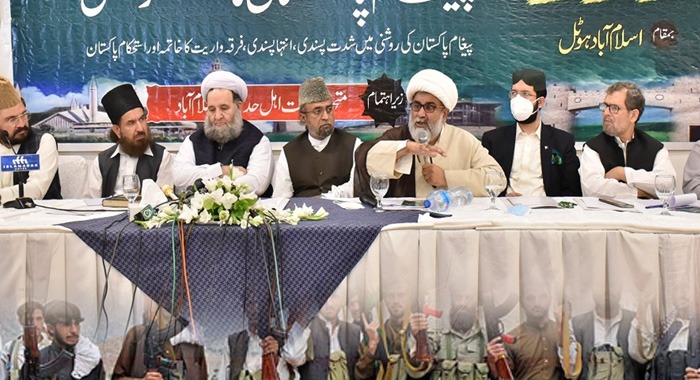In recent decades, the misuse of Islamic concepts particularly jihad has created confusion, chaos, and catastrophic consequences across the Muslim world. Nowhere is this more evident than in Pakistan, where militant groups have hijacked the sacred term to justify acts of terrorism, rebellion, and mass violence. It is imperative to draw a clear and uncompromising line: jihad can only be declared by the state not by individuals, not by groups, and certainly not by those who wage war against the very system they claim to represent.
Violence and extremism do not emerge in a vacuum. They thrive in environments where grievances fester, ideologies are manipulated, and religious texts are weaponized. When conflicts intensify, they often transform into extremism and ultimately terrorism. The consequences are grave: loss of innocent lives, destruction of public order, and the undermining of national security and social cohesion.
In 2009, parts of Pakistan saw a disturbing attempt to forcibly impose a version of Shariah through violence, spearheaded by groups like the Tehrik-i-Taliban. Under the guise of moral reform, women were restricted, men punished for grooming, minorities extorted, and suspected offenders stoned or executed without due process, without legal authority, and without moral legitimacy. These actions were not only unconstitutional but flagrantly un-Islamic.
Such groups manipulate religion for political or ideological power. Yet Islamic teachings are clear: there is no place in Islam for the use of force by non-state actors. In response to these trends, leading scholars from all Islamic schools of thought in Pakistan issued a unified fatwa, declaring that enforcing Shariah through violence is haram (forbidden). This landmark declaration Paigham-e-Pakistan asserts that religious reform must be pursued through peaceful, constitutional, and democratic means.
In Islam, jihad is a noble concept, associated with struggle in the path of truth, justice, and defense. But it is not a free license for any group or individual to raise arms at will. Modern extremist organisations have corrupted the term, turning it into a political tool to incite rebellion, radicalize youth, and destabilize states.
The consensus among Pakistani scholars is unequivocal: the declaration of jihad is solely the prerogative of the state. No individual or organisation has the religious or legal authority to wage war under the banner of religion. Any such unilateral action is not jihad it is fasad (corruption), and it constitutes rebellion against the state, which is strictly forbidden in Islam.
The Prophet Muhammad (peace be upon him), throughout his life, never undertook armed struggle as a private citizen. He only engaged in battle as the head of state, when war was imposed upon him and his community. He refrained from violence even when personally attacked, choosing patience, negotiation, and migration over confrontation.
To misuse jihad as a cover for political violence is to betray both the message of the Prophet and the spirit of the Quran.
Among the most heinous tactics employed by terrorist groups are suicide bombings. These attacks which have claimed the lives of thousands of innocent civilians, police officers, military personnel, and minority communities combine three major sins in Islam: suicide, murder, and rebellion against a Muslim state.
The Quran is unequivocal: “Do not kill yourselves. Surely, Allah is ever Merciful to you.” (Surah al-Nisa: 29)
The Prophet (peace be upon him) strongly condemned suicide in multiple hadiths, declaring that those who take their own lives will face eternal punishment. In one case, he refused to lead the funeral prayer of a man who committed suicide a striking indication of the seriousness of the act.
When such a suicide also involves the killing of innocents, the sin multiplies. “Whoever kills a believer intentionally his recompense is Hell, wherein he will abide eternally. And Allah’s wrath and curse are upon him…” (Surah al-Nisa: 93)
These are not abstract theological warnings they are divine commandments. Any support for suicide attacks, whether ideological, financial, or logistical, is an act of war against both Islam and the state.
Pakistan is a constitutional Islamic republic. Its governance, judiciary, and armed forces are bound by the Constitution, and any attempt to subvert that system through violence is an act of rebellion. As such, it is the exclusive role of the state to determine matters of war and peace, including the declaration of jihad, in accordance with both Shariah and constitutional law.
Groups that attempt to bypass this authority are not defenders of Islam—they are violators of it. Their actions result in instability, sectarianism, and international disrepute for Muslims everywhere. They mislead the youth, desecrate the name of religion, and undermine the very foundations of a just Islamic society.
To reclaim the true message of Islam, religious leaders, educators, and state institutions must work together to confront radical ideologies. Clerics must spread awareness that jihad is not a personal or organisational right it is a matter of state policy and state policy alone. Only by restoring the rightful authority of the state can we eliminate the violent distortions that masquerade as religious duty.
Violent extremism, masked in religious language, is one of the greatest threats to Pakistan’s future. Terrorism has nothing to do with Islam, and jihad is not a banner for rebellion. The state must remain the sole guardian of armed force under law. Islam provides a path of justice, dignity, and peace not an excuse for anarchy.
The time has come to stand united against all forces that promote terrorism under the false pretense of religion. Let it be known without ambiguity: in Pakistan, only the state can declare jihad, and those who attempt otherwise are not warriors they are criminals.





